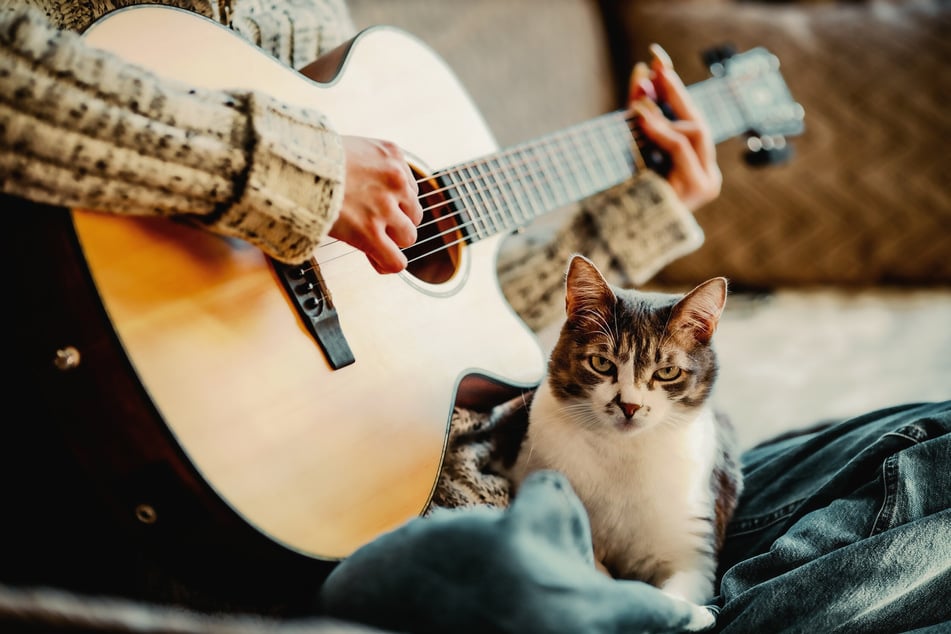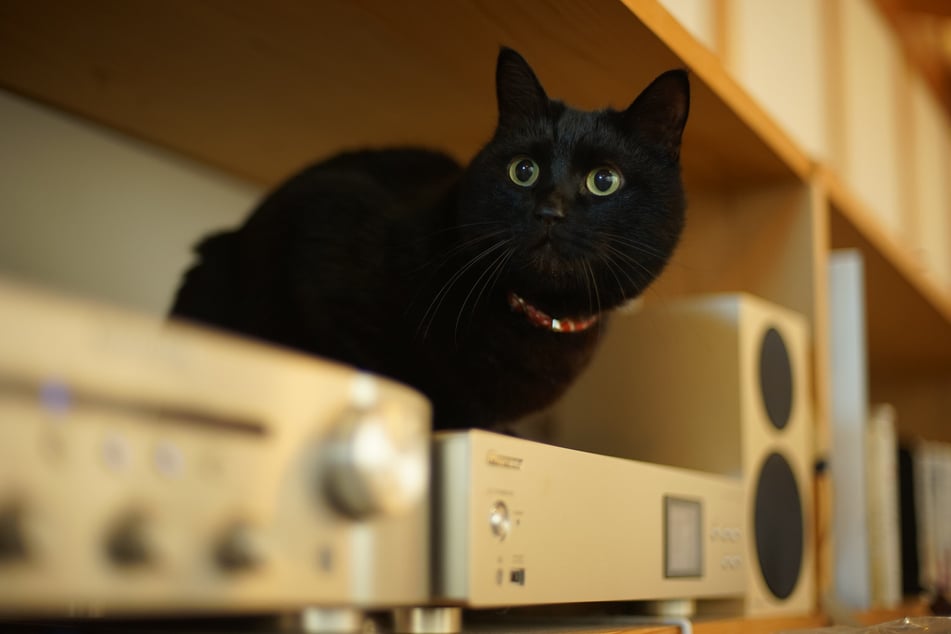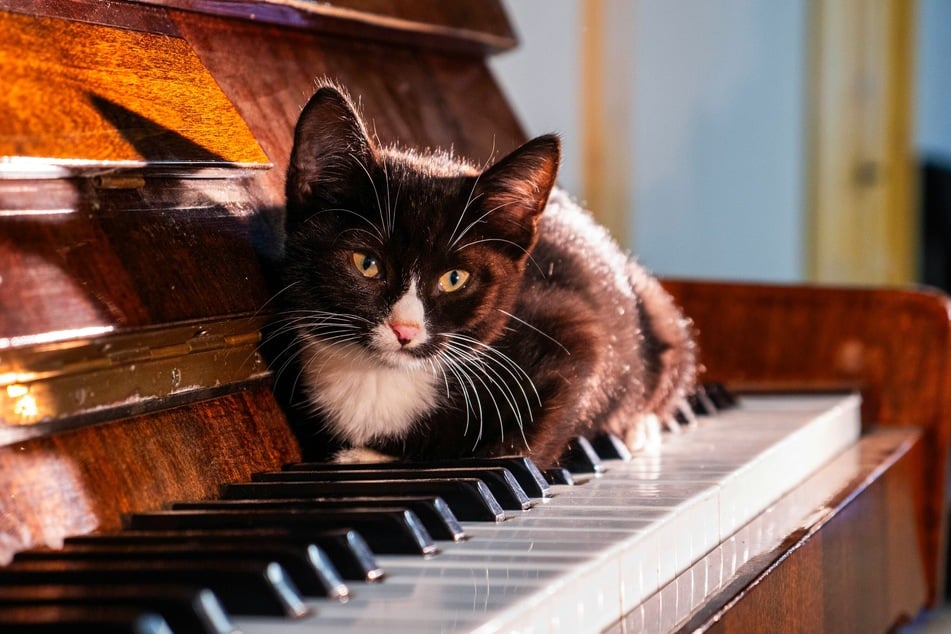Do cats like music, and how do we know?
Has your cat ever reacted strongly to hearing music? That may have made you wonder whether our feline friends have any musical interests at all – let's find out!

Have you ever had the feeling that your kitty has musical preferences?
Well, cats have sensitive ears and very fine hearing. They hear a different and higher frequency range than humans and are able to perceive sounds that we can't.
At birth, however, kittens are almost deaf. They only hear their first sounds when they are a few weeks old.
Sounds that kittens notice early on include the purring of their mother, their heartbeat, or the sound of suckling while drinking their milk. These melodic sounds have an influence on the effect of music on our feline friends.
So let's tae a look at cats' complicated relationship with music.
Do cats like music?
Cats like very specific sounds. These are, for example, sounds that they have associated with something positive – for example, heartbeat sounds and drinking noises. They often give kitties a feeling of security.
That may sound like it's stretching the definition of music, but it doesn't have to!

What kind of music do cats like?
As cats communicate at a higher pitch, they prefer this to the human pitch. Accordingly, musical preferences can be derived from this. In music, however, it is not only the frequency of pitch that plays a role, but also dynamics and tempo.
Cats purr gently and quickly at around 1,500 beats per minute, so ideal sounds are often based on a cat's purr rate.
According to some scientists, cats often like the sounds of violins, cellos, pianos, and keyboards. In general, soft tones are clearly preferred.
Music for cats
Some scientists and musicians have studied the effect of music on animals and identified preferences.
David Teie, a researcher and cellist, has composed music explicitly for cats on two Music for Cats albums. It consists mainly of higher harp, cello, and violin sounds. He has also modified organ notes, for example, so that they sound like purring.
For the most part, cats react more positively to these species-appropriate pieces.
But as with humans, not every cat is the same: while cat music makes some animals purr, others remain completely unimpressed.
What kind of music do cats dislike?
With their sensitive ears, cats are not fans of loud sounds. Choppy melodies or harsh, hectic, and aggressive sounds from guitars, basses, or drums, for example, do not go down well with them. Our four-legged friends are pretty unlikely to dig techno or metal.
Different tonalities and a variety of different sounds can overwhelm cats, which is why they are rarely fans of lively jazz.
What effect does music have on cats?
The right tunes with gentle sounds can have a calming effect on a furry friend. With the right purring tempo, even the heart rhythm adjusts accordingly.
You can tell that a kitty is relaxing by the fact that its breathing and heartbeat calm down. Closed eyes or perked-up ears can also be a sign of this.
However, loud and hectic music can stress them.

Conclusion
Cats prefer certain sounds. Some animals seem to like certain music and are attracted to it.
However, the difference in, for example, resting heart rate and perceptible frequencies between humans and cats influences the effect of the music. Pieces composed especially for cats have a more attractive and relaxing effect for them.
However, the effect of and reaction to pieces of music differs between cats – just as it does for humans.
Cover photo: 123rf/pakulinsergey
